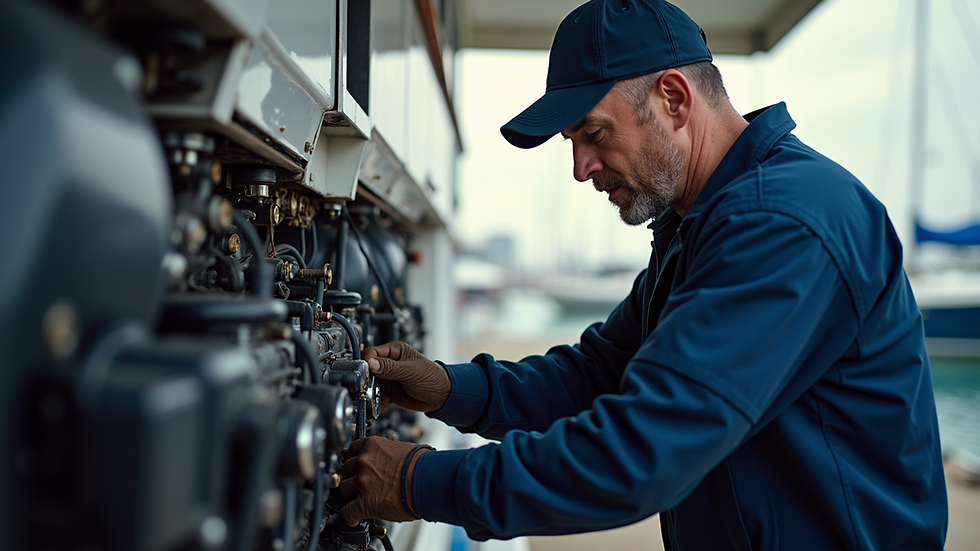Uncover the secrets to DIY boat maintenance with this essential guide
- Richard Lee
- Sep 20, 2024
- 2 min read
Maintaining your boat is crucial to ensure its longevity and performance on the water. Whether you're a seasoned sailor or a novice boat enthusiast, taking care of your vessel can save you time, money, and potential headaches down the line. In this comprehensive guide, we'll walk you through the essential steps of DIY boat maintenance so you can keep your watercraft in top condition.
1. Regular Inspections
Regularly inspecting your boat is the first step in proper maintenance. Check for any signs of wear and tear, such as cracks, leaks, or loose fittings. Inspect the hull, engine, electrical systems, and safety equipment to ensure everything is in working order. Addressing minor issues promptly can prevent them from becoming major problems.
2. Cleaning and Washing
Keeping your boat clean is not just about aesthetics; it also protects the integrity of the materials. Regularly wash the exterior with a mild soap and water to remove salt deposits and dirt. Don't forget to clean the interior, including upholstery, carpets, and storage compartments. Proper cleaning can prevent corrosion and extend the life of your boat.
3. Engine Maintenance
The engine is the heart of your boat, so it's essential to keep it well-maintained. Change the oil and filter regularly, inspect belts and hoses for wear, and flush the cooling system after each use. Pay attention to any strange noises or vibrations, as they could be signs of underlying issues that need to be addressed promptly.
4. Propeller Care
A damaged or improperly maintained propeller can significantly impact your boat's performance. Inspect the propeller regularly for dings, cracks, or debris that may be affecting its efficiency. Clean the propeller after each use and consider getting it professionally serviced at least once a year.
5. Electrical System Check
Electrical issues can be a major safety hazard, so it's essential to check your boat's electrical system regularly. Inspect wiring for any signs of damage, ensure all connections are secure, and test lights, gauges, and other electrical components. Addressing electrical problems promptly can prevent accidents and ensure your safety on the water.
Happy Boating! 🌊
Total Words: 515










Comments